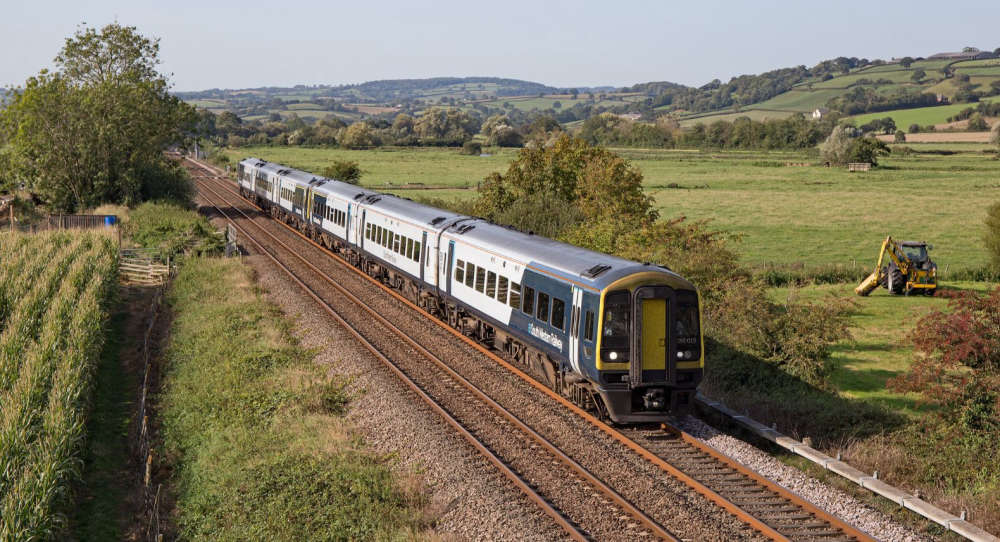
South Western Railway and Network Rail are set to restore the full West of England Line timetable on Saturday 29 November. A reduced service has operated since August due to the UK’s driest ever spring and summer, which affected track conditions from Yeovil to Exeter
South Western Railway (SWR) and Network Rail are set to reinstate the full West of England Line timetable from Saturday 29 November.
When restored, direct train services between London Waterloo and Exeter St Davids will once again run hourly, to their regular journey times. Customers can check before travelling with journey planners now fully up to date.
Tom Desmond, Network Rail’s Wessex Route Operations Director, speaking on behalf of South Western Railway and Network Rail, said:
“We can confirm that we are set to restore the full timetable on the West of England Line on Saturday 29 November. We know just how important this line is to its local communities, with our customers using services to reach their places of work, or local schools and colleges.
“We have closely monitored ground conditions and are now able to start track repairs. Once those repairs are complete, trains will be able to run at full line speeds, bringing the full timetable back into operation.
“We are very grateful to our customers for their continued patience and would like to sincerely apologise for the disruption they have experienced since August.”
Bruce Duncan, Chair of the Salisbury-Exeter Rail User Group, said:
“After a very challenging few months for students, commuters and leisure travellers using SWR’s services between Salisbury and Exeter, we are absolutely delighted the hourly timetable will be restored from Saturday 29 November.
“The SWR and NR team have worked hard to remedy the issues caused by the dry embankments, made particularly challenging by the extensive sections of single track on the route, and we look forward to working with them on long term plans to mitigate the ongoing impacts of climate change.”
The amended timetable was introduced in August following the driest spring ever recorded. The extremely dry conditions caused clay embankments between Gillingham in Dorset and Axminster in Devon to shrink, an issue known as ‘Soil Moisture Deficit’.
This disturbed tracks above the embankments and forced engineers to introduce speed restrictions, with trains travelling at much slower speeds than normal. Due to the single line sections of track between Salisbury and Exeter St Davids, trains were then unable to pass each other in their usual locations, and an amended timetable was needed.
Soil moisture levels remained low through what was the hottest ever summer in the UK, and engineers were unable to carry out lasting repairs, as the clay embankments continued to shrink and move tracks.
With autumn rain and lower temperatures slowly restoring moisture levels, the clay embankments are stabilising, and engineers can begin to restore track levels. Once their work is complete, the line’s speed restrictions will be removed and the full timetable will be reinstated.

 Rural Affairs officers welcome new law to crack down on livestock attacks
Rural Affairs officers welcome new law to crack down on livestock attacks
 Hospiscare needs your help with a unique ‘double your money’ fundraising challenge
Hospiscare needs your help with a unique ‘double your money’ fundraising challenge
 County Council invites residents to help shape 2026/27 budget
County Council invites residents to help shape 2026/27 budget
 ‘Pop-up’ vaccination clinics being held in several communities this week
‘Pop-up’ vaccination clinics being held in several communities this week












